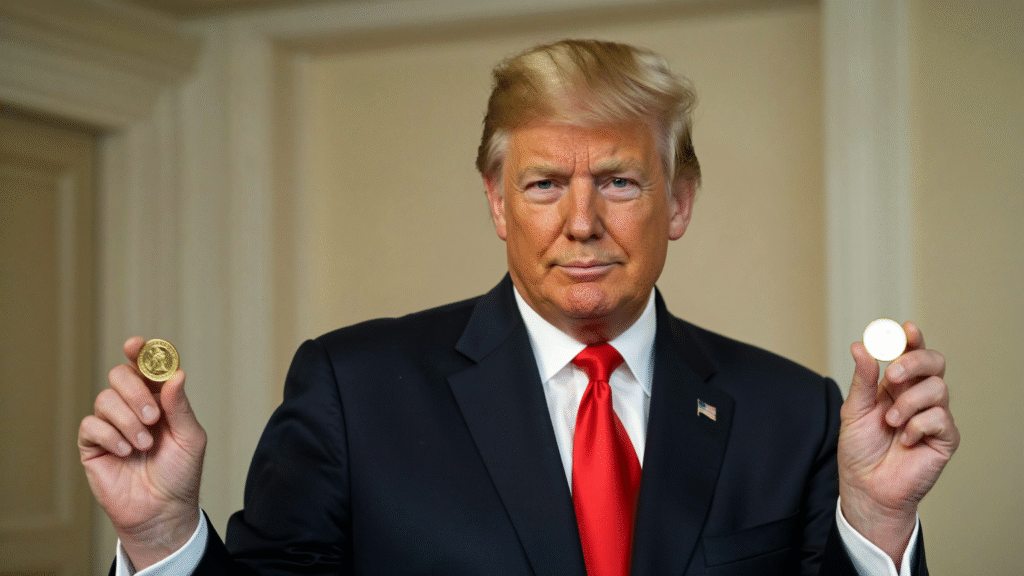Finance is evolving fast, and it’s no longer just about banks and long waits. DeFi and CeFi offer еxciting ways to manage, invest, and grow your money. CeFi, or centralized finance, works like a digital bank, convenient and familiar but controlled by someone else.
Key points:
- Understanding the players, CeFi offers convenience, security, and customer support through centralized platforms while DeFi gives users full control, transparency, and global access via decentralized networks.
- Key differences matter because DeFi and CeFi vary in control, accessibility, risk, and transaction speed, helping users choose the model that fits their comfort level and goals.
- Shaping the future, both systems are driving innovation in finance and offer new opportunities for investors and everyday users to explore modern finаncial tools safely and strategically.
DeFi, or decentralized finance, removes the middleman, letting you interact directly with smart contracts and blockchain for more freedom and transparency. In this article, we’ll break down the differences and show why both are shaping the future of finance for everyone.
What is CeFi?
CeFi, or centralized finance, is basically the digital version of the bank you already know. It’s a system where a trusted company or institution manages your money, transactions, and investments for you. Think of it as having a financial guide who handles all the behind-the-scenes work while you focus on using the services.
Key features of CeFi:
- A central authority controls the platform and your funds
- Often includes user-friendly apps and interfaces
- Customer support is usually available if things go wrong
Examples of popular CeFi platforms:
Pros and Cons
The pros of CeFi include stronger security thanks to regulatory compliance and centralized oversight, and customer support is available if issues arise. On the cons side, you do not have full control over your funds, and your money depends on the platform remaining secure and reliable.
What is DeFi?
DeFi, or decentralized finance, flips the traditional model on its head. Instead of relying on a bank or company, you interact directly with financial services through smart contracts on a blockchain. It’s like managing your own bank, but online, open to anyone, and with no middleman taking a cut.
Related: Kusama Reveals Details Of New AI Product in Recent Livestream
Key features of DeFi:
- Peer-to-peer transactions with no central authority
- Open-source platforms anyone can use or build on
- Smart contracts handle everything automatically
Examples of DeFi platforms and protocols:
- Uniswap
- Aave
- Compound
Pros and Cons
The pros of DeFi include full control over your funds, transparent operations, and access to global financial opportunities. On the cons side, you bear full responsibility for your assets, and there are risks such as smart contract vulnerabilities, potential scams, and navigating a more complex system compared to traditional finance.
Key Differences Bеtween DeFi and CeFi
When it comes to DeFi and CeFi, the differences go beyond just names. From who’s in control to how fast and chеap transactions are, understanding these contrasts can help you decide which style of finance fits your goals and comfort level. Let’s break it down.
Control and Governance
One of the biggest differences between DeFi and CeFi is who’s in charge. CeFi hands control to a central authority, meaning the platform manages your funds and enforces the rules. DeFi flips that script, giving you direct control through smart contracts. You make the decisions, which is empowering but also comes with responsibility.
Accessibility and Inclusivity
CeFi platforms often require ID verification and follow regional regulations, which can make them less accessible to some users. DeFi, on the other hand, is open to anyone with an internet conneсtion and a digital wallet, making it a truly global playground for financial activity.
Risk and Security Considerations
With CeFi, security is backed by regulations and the platform’s infrastructure, but your money is still reliant on the company staying safe and honest. DeFi removes the middleman but exposes you to smart contract bugs, scams, and the challenge of navigating a more complex system. Essentially, more freedom comes with more personal responsibility.
Related: Crypto Industry Now Mobilizes Against Perceived Quantum Threat
Speed and Cost of Transactions
CeFi platforms often process transactions quickly and provide support if something goes wrong, but fees and processing times can vary depending on the platform and region. DeFi transactions happen directly on the blockchain, which can be fast and cost-effective, but network congestion or gas fees can sometimes slow things down or make them more expensive.
How DeFi and CeFi Are Shaping the Future of Finance
Finance is evolving rapidly, and both DeFi and CeFi are driving the change. CeFi grows as users seek secure, convenient digital platforms, while DeFi attracts innovators exploring finance without middlemen.
Both can coexist, with banks adopting DeFi-inspired tools and DeFi platforms adding CeFi-style features. For users, this means more choices, flexibility, and opportunities to manage money in ways that fit their goals and comfort level.
Moving Forward with DeFi and CeFi
DeFi and CeFi each offer unique ways to manage, invest, and grow your money. CeFi provides convenience, security, and support, while DeFi gives you control, transparency, and access to global financial opportunities. The key is understanding the trade-offs, risks, and benefits of each.
Whether you stick with CeFi, dive into DeFi, or explore both, the most important thing is to start small, learn as you go, and make informed decisions. The future of finance is exciting, and now it’s in your hands to explore it safely and confidently.












